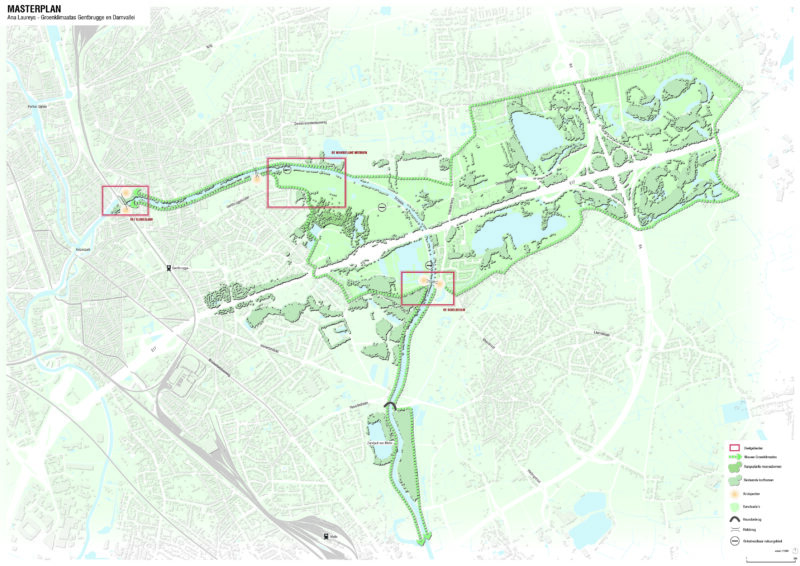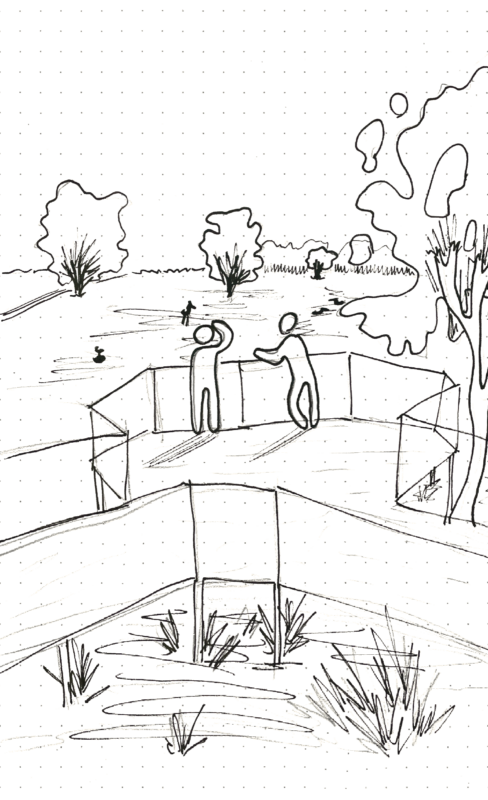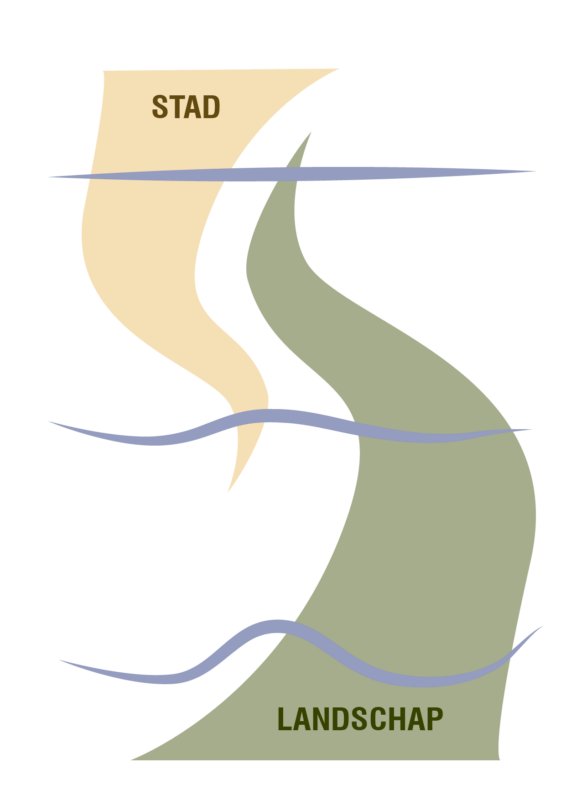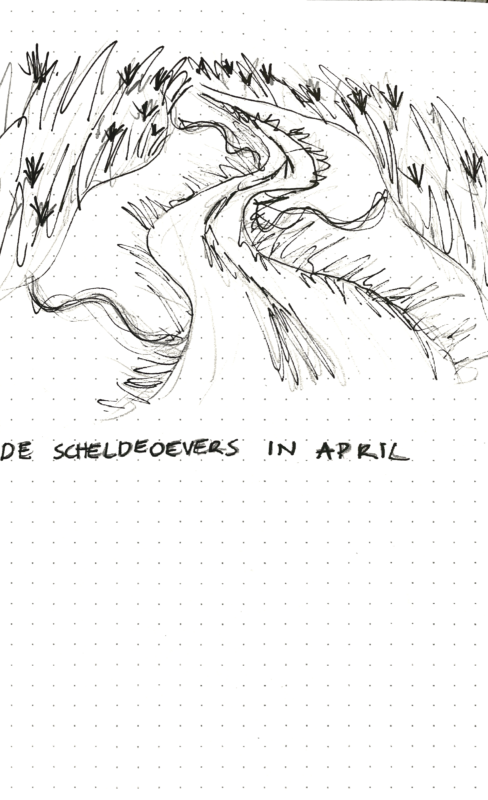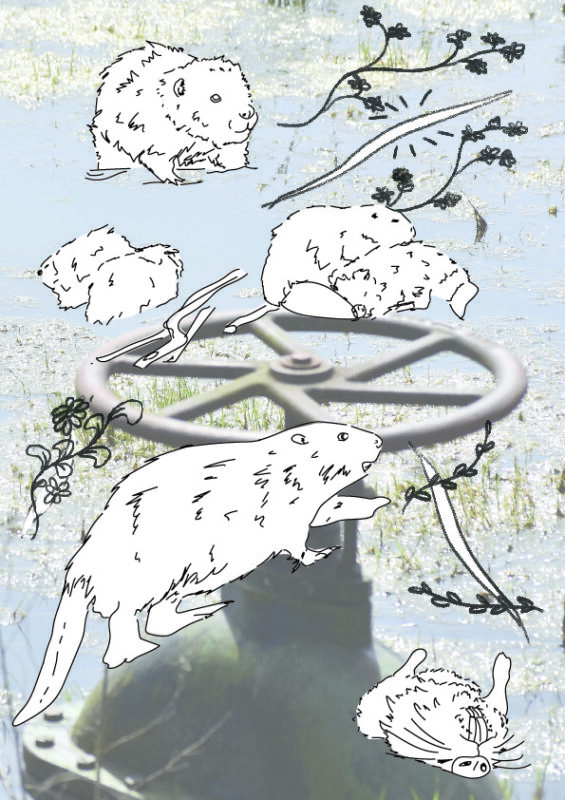Ana Laureys, wat de natuur ons leert: een groene reünie
Pieter Foré
Kobe Vanhaeren
Ann Meirlaen
Sally Lierman
Joke van de Maele
“The land knows you, even when you are lost.”
― Robin Wall Kimmerer, Braiding Sweetgrass (2013)
Met de op één na hoogste stedelijke bevolking van Europa, België bestaat uit ontelbare grijze, stedelijke aderen die vanuit elke grote stad reiken. Slechts 8% van ons land bestaat uit natuurgebieden, wat bijna altijd toegankelijk is voor voetgangers en fietsers.
Onze ruimte lijkt compleet gebaseerd te zijn op onze behoeften als mens en wat we uit de natuur kunnen halen.
Het is dus duidelijk: wij zijn echte parasieten. Enkel halen wij er niet uit wat we echt nodig hebben – connectie. De mens is meer eenzaam en ontkoppeld dan ooit tevoren.
Wat gebeurt er als we terug luisteren naar wat het landschap ons verteld? Kunnen we, door onze dominatie aan de kant te schuiven en de natuur éérst te zetten, terug werkende en forse ecosystemen opbouwen?
“The land knows you, even when you are lost.”
―
With the second highest urban population in Europe, Belgium consists of innumerable urban veins reaching from every major city in the country. Only 8% of our country consists of nature reserves, and most if not all of it is accessible to pedestrians and cyclists.
Every part of our infrastructure is based on our needs as humans and what we can take from nature.
In other words, we are true parasites. Except we don’t receive what we truly need from it – connection. We humans are more lonely and disconnected than ever before.
What happens when we open our hearts and truly listen to what our landscapes wish to tell us? By putting aside our dominance and prioritising nature’s needs, can we rebuild functioning and strong ecosystems?
